Aftersun Ending Explained: Exploring The Meaning And What Happened To Calum
This one hurts.
I first saw Aftersun in October 2022 at the Chicago International Film Festival. It’s a movie that has left me haunted ever since. The film quietly devastates you. The ending doesn’t have to shout to speak volumes about the fate of the characters and the crippling weight of memories, loss, and mental health issues.
This is one of the most profound films of 2022; you can’t help but feel something as you watch it. The Aftersun ending leaves you with one final somber image, so let’s discuss it.
Warning: Aftersun spoilers ahead. Proceed with caution.
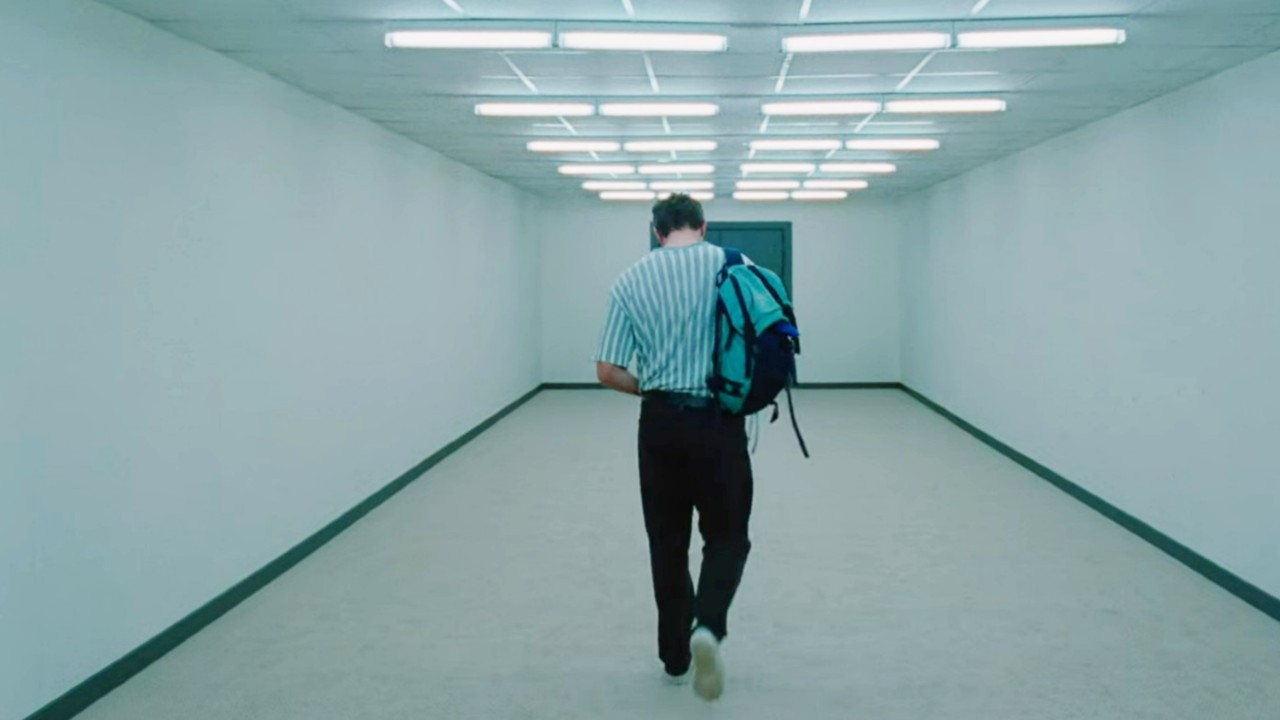
How Does Aftersun End?
It’s the final night of Sophie’s (Frankie Corio) and Calum’s (Paul Mescal) Turkey vacation. They celebrate with some ice cream and dancing to “Under Pressure” by Queen and David Bowie (it’s one of the best movie dance scenes).
This scene is juxtaposed with images of adult Sophie (Celia Rowlson-Hall) seeing her dad dancing at a rave. She screams for him but he doesn’t hear her. Then she holds him as the film flashes between child Sophie dancing and holding her father close and adult Sophie holding him so he cannot leave.
However, he eventually escapes and falls away from adult Sophie before she turns into a child.
We then see Calum recording her as she boards a plane back to Edinburgh to be with her mother and return to her life. The film then freezes on her as a child waving goodbye to her father. Adult Sophie has paused the video on her home videos from that vacation.
Your Daily Blend of Entertainment News
The final scene is of Calum stopping the recording and walking away.
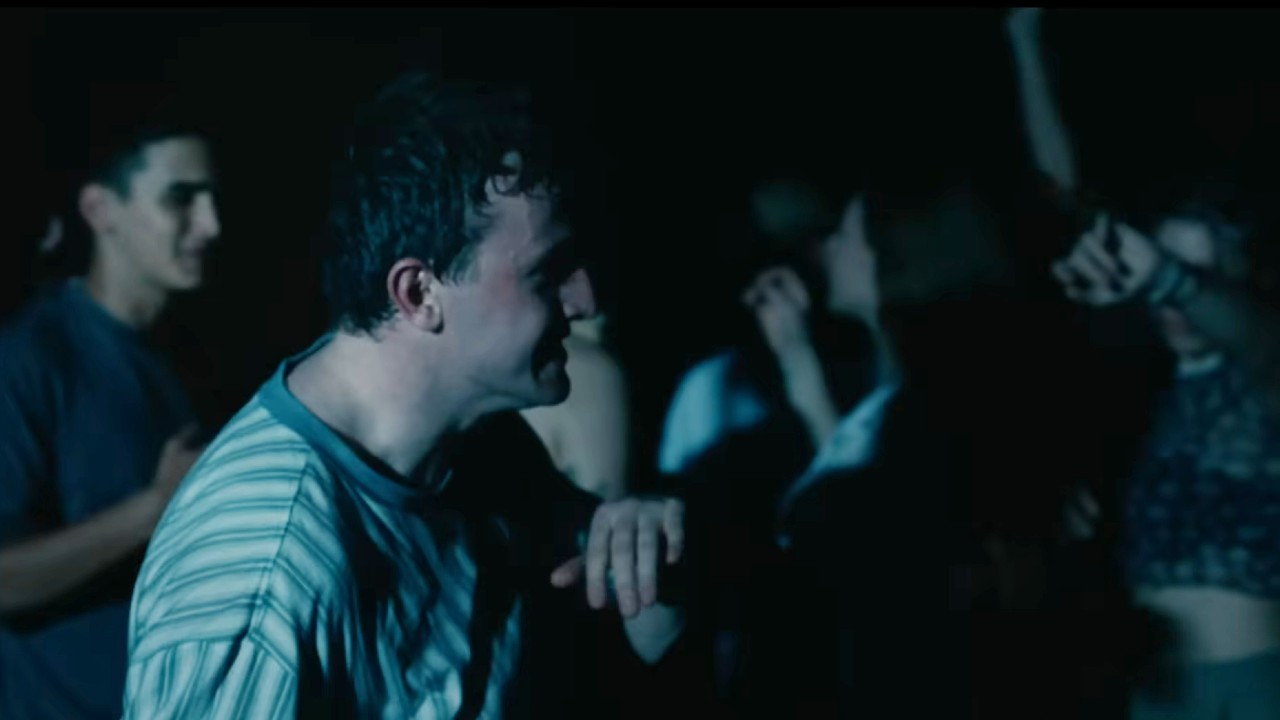
What Happened To Calum?
When I originally saw Aftersun, I was convinced that the film clearly reveals that Calum died after the vacation. Rewatching the film, it became apparent that my memory of the ending had become slightly distorted. You can just feel the weight of his absence so much that it seems like the movie makes a big declaration about his fate.
Aftersun tells you everything you need to know without stating it. It shows far more than it tells.
It’s not bluntly stated, but heavily implied that he dies by suicide not too long after that trip. It’s clear that this is the last time Sophie sees her father and that’s one reason why she’s recalling these memories.
There is a chance that Calum doesn’t die by suicide, but his life still ends in a heartbreaking manner. He could have died due to some of his self-destructive behavior, or his mental health issues could have gotten so bad that he disappeared, never to be seen again. His fate isn’t confirmed, but this is a film about grief and loss, at least one aspect of it. So whatever has happened to Calum, the loving father from the vacation is gone forever.
Calum is never diagnosed in Aftersun but he shows many signs of someone suffering from a form of depression. He tries to hide it from Sophie, but in moments of solitude, you see the pain, self-loathing, fear, and despair that surrounds him. It’s one of the most thoughtful movies about depression.
One of the most gut-punching moments is when Calum casually mentions that he doesn’t think he’ll make it to 40 and is surprised he made it to 30.
There are so many little moments like these, where Calum mentions something that shows he has been suffering from mental health issues for a while, probably since adolescence. Aftersun builds its tension by allowing the audience to slowly see more and more of Calum’s pain until we watch him break down crying.
There is a scene where Sophie describes her feelings of melancholy to Calum. It’s implied that she may eventually deal with similar issues to her father. He then spits on the mirror. At the moment, he may loathe himself because he feels he has somehow caused Sophie’s sadness, whether genetically or through his actions, or he could just hate himself for being reminded of these overwhelming feelings that haunt him. This small scene reveals a lot about Calum’s mental state and Sophie’s potential state in her current life. It’s another example of how Aftersun brilliantly layers these small moments that speak volumes.
Because much of the tone is neutral, it isn’t the saddest movie ever but it doesn’t shy away from making its audience feel melancholy when it all ends.
At the end, the final shot further confirms his fate. Calum walks away, not going back to the real world, but into Sophie’s memories. You see the strobe lights coming from behind the door, and this seems to imply that this becomes Sophie’s final active memory of her father.
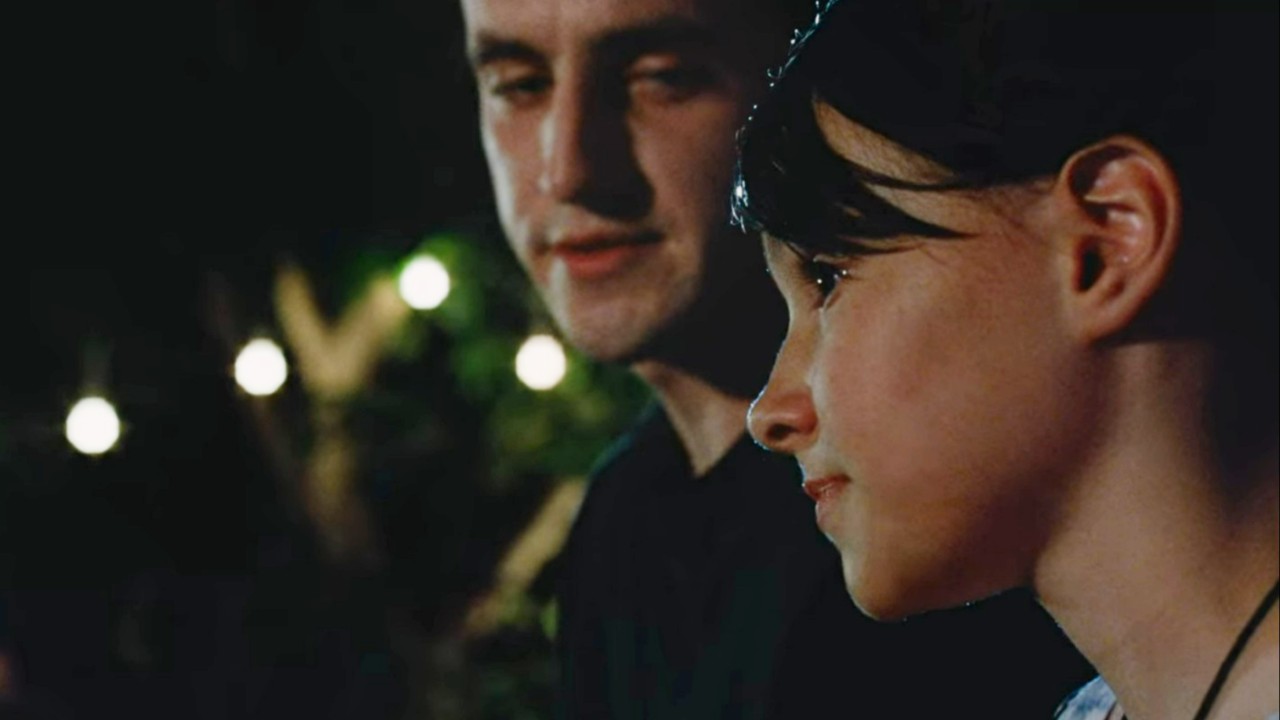
The Fear Of Aging In Aftersun
We see Calum and Sophie going through opposite reactions in their journey of aging. Sophie wants to grow up. Like many kids, she sees being an adult as a much more exciting possibility than childhood.
Calum fears growing old. We can assume this is a natural fear for many 30-somethings. However, he seems even more haunted by it than many his age, because his life doesn’t seem to be going as he wants. He has money issues, has not particularly found his career, and seems to be haunted by regrets and bad memories.
The fear of aging seems entangled with his depression and anxiety about his life. In some moments, it even seems like Calum would love to switch places with Sophie and have the ability to do it all over again, so he'd have more time to get it right.
We only see glimpses of adult Sophie, but she seems to be a similar age as Calum in the past. She’s also a new parent. So, she may be dealing with similar questions: Is this the life I wanted at this age? Am I the person my child needs me to be right now?
Growing older seems to be a major starting point for the trip (a sort-of birthday celebration for Sophie and Calum), and aging may be why adult Sophie starts her journey of remembering her father.
She celebrates a birthday, and from the opening scenes, we know that Sophie and Calum have birthdays close to each other. Therefore, her aging could also make her think even more about her father, because his birthday is also coming up.
Aging is sometimes a privilege and a curse. For Calum, it’s something he will never get to look forward to or dread again, because he’s now forever frozen in his early 30s.
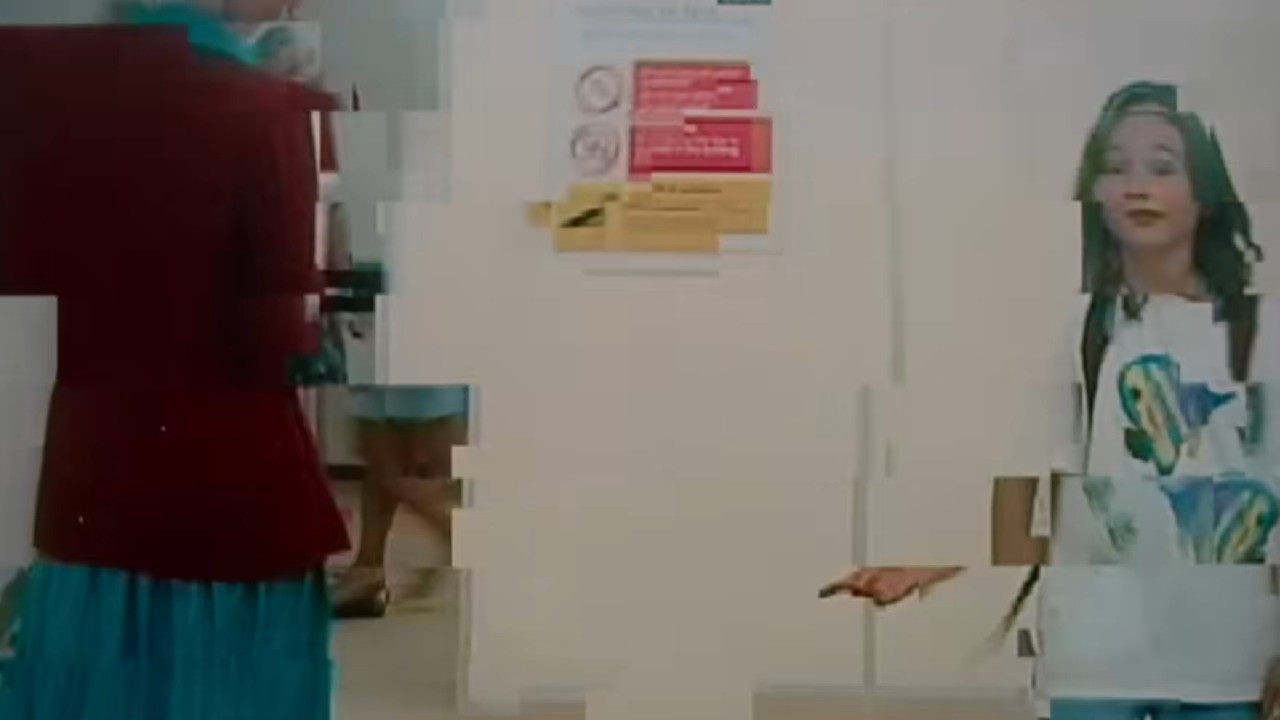
The Unreliable Nature Of Memory
Aftersun is very much a movie about memory. In an interview with Brief Take, director and writer Charlotte Wells states that the overall arc of the movie is adult Sophie looking back and reflecting on this trip and her father. At the very beginning, the recording freezes and you can see a reflection of adult Sophie watching these home videos.
We then, at the end, see her fully watching them. Many of the scenes with adult Sophie show her in a rave-type situation watching her father dance. This seems, in my opinion, to act as a way to show the fading nature of Sophie’s memory of her father.
The strobe lights make it hard to completely see and watch him. He comes in fragments. He’s also moving along a sea of others, almost lost and fading from her. Metaphorically, this could be his declining mental health and also her inability to hold on to memories as she ages and they become less vibrant.
In a Deadline interview, Wells stated that she hopes viewers take away the idea that the loss doesn't diminish the love between these characters. Calum may be gone, but it’s clear that he fought his inner battles to try to be a good father for Sophie. His love for her says a lot more about him than his death.
In a Letterboxd interview, Paul Mescal had this to say about what he hopes people take from Aftersun:
They’ll probably feel a great sadness. But I’d also like them to come away knowing that memory is a very powerful thing, and it’s warm.
This offers an interesting perspective on this film. If you view it from this lens, the film still remains painfully sad but it gives power to memories. Memories help keep people alive in spirit. They also make feelings such as love, joy, and even loss stronger and more real.
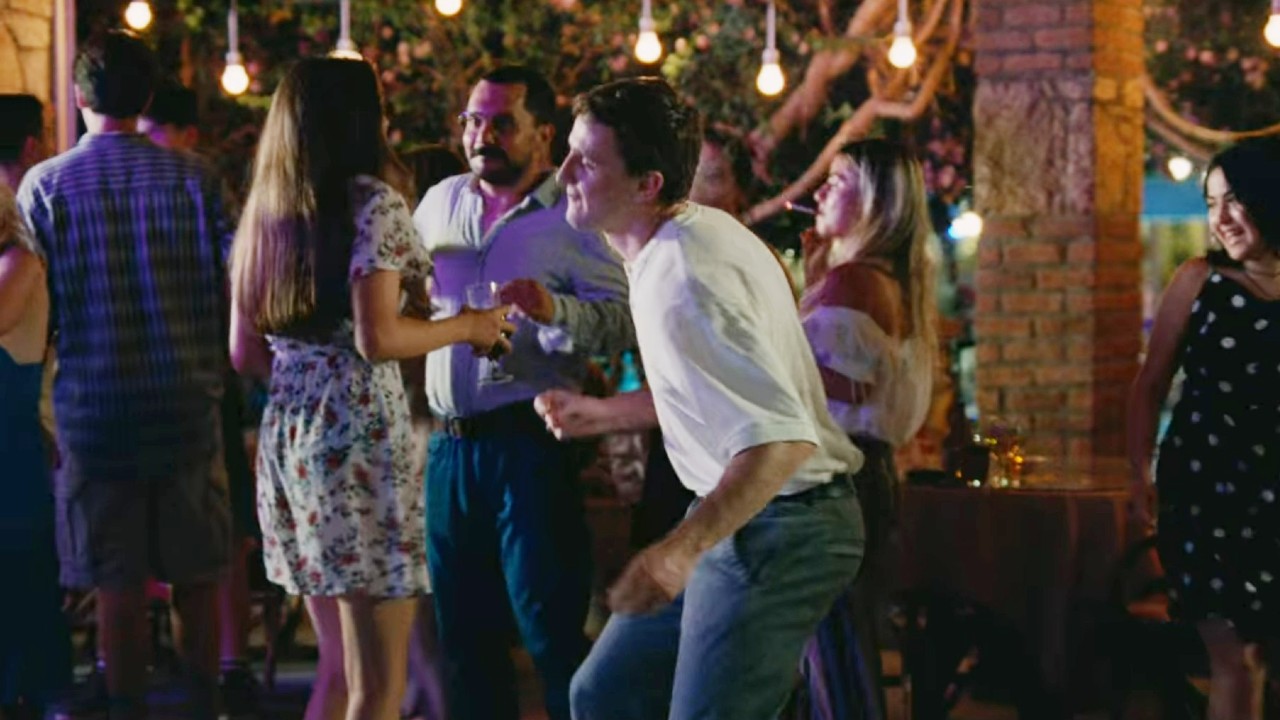
Dancing In Aftersun
The memories of Calum dancing are sprinkled throughout Aftersun. Adult Sophie follows Callum as he dances along. As stated above, one interpretation is that these images represent her fading memory of him, but there is so much going on with Calum’s dance scenes. Sometimes they represent his increasing anxiety and depression. For example, the sea of people takes on a drowning nature. He can’t seem to stay afloat and feels overwhelmed and unable to breathe as people move along without him.
On the other hand, Calum’s dancing also represents him in a state of happiness. In the past, Calum is shown dancing in a few different scenes. He starts their vacation dancing alone. He seems at peace and in bliss in this solo quiet moment. Then towards the end, one of Sophie’s final, and happiest moments with him, is them dancing together.
He’s also seen dancing carefree (embarrassing her but happy). Calum also mentions loving dancing. These moments showcase him at his happiest, which may be why he’s appearing in her memory this way. She is trying to hold on to the joyful version of him, despite the sad memories creeping into her thoughts. Sophie could also be trying to come to terms with the upbeat father she remembers and the reality of his mental and emotional state.
Sophie doesn’t see as much as us. She doesn’t see Calum break down in tears, spit at his image, or look devastated when he can’t afford things. She mainly sees her father happy and that’s why the dancing may be so important in Aftersun, because it represents Calum in his ideal state: dancing and carefree — a contrast from his reality.
Aftersun is a movie that I connect with deeply, and though it initially wasn’t at the top of my upcoming movies watch list, it has become a favorite. It is a movie I recommend to all those wanting a little devastation in cinema form. It offers a thought-provoking look at mental health, parenting, aging, and memories. It’s one of Paul Mescal’s best movies.
Rent/buy Aftersun on Amazon
Stream Aftersun on Netflix.
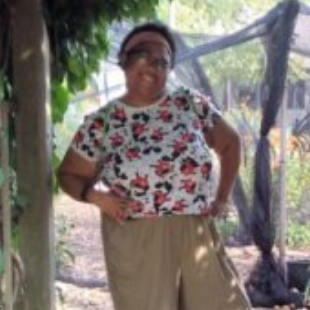
Spent most of my life in various parts of Illinois, including attending college in Evanston. I have been a life long lover of pop culture, especially television, turned that passion into writing about all things entertainment related. When I'm not writing about pop culture, I can be found channeling Gordon Ramsay by kicking people out the kitchen.
